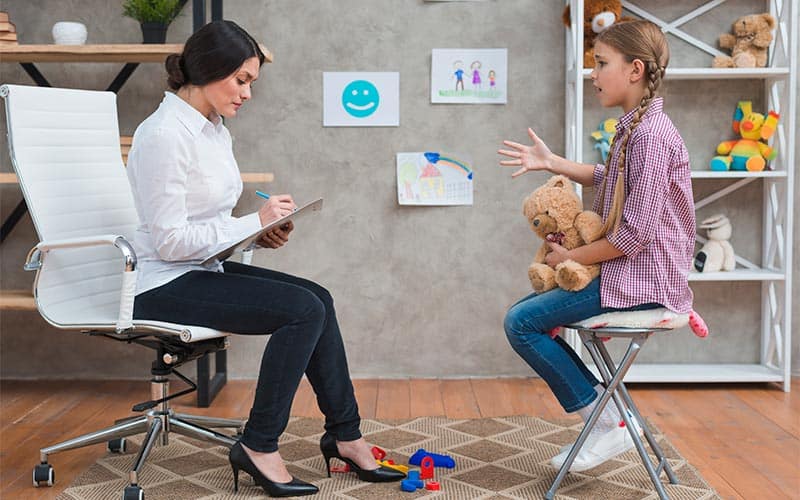Post-Traumatic Stress Disorder (PTSD) is a mental health condition that can impact children of all ages. PTSD may develop following traumatic experiences such as accidents, natural disasters, abuse, or wartime experiences.
Effective Trauma Therapy for Children: Professional Support for Healing.

Untreated PTSD can have both immediate and long-term detrimental effects on a child’s mental and physical health.
Immediate Impact of Untreated PTSD
In the short term, untreated PTSD can lead to various mental and physical health issues in children, such as:
- Sleep Disturbances: Children may struggle with insomnia, leading to fatigue, irritability, and concentration issues.
- Behavioral Problems: Symptoms might include aggression, withdrawal, or attention difficulties.
- Learning Difficulties: Challenges with concentration, memory retention, or following instructions can be prevalent.
Long-Term Consequences
Untreated PTSD can lead to severe long-term effects, including:
- Mental Health Issues: There’s an increased risk of developing chronic conditions like depression, anxiety, and behavioral disorders.
- Emotional and Social Development: PTSD can hinder a child’s emotional and social growth, complicating their ability to form healthy relationships and function effectively in society.
- Learning and Cognitive Development: PTSD may impede a child’s academic potential by affecting learning and cognitive development.
- Physical Health Risks: Children with PTSD are at higher risk for physical health issues like heart disease, obesity, and diabetes.
- Vulnerability to Further Trauma: PTSD may increase the likelihood of experiencing additional traumas due to difficulties in coping with stress and vulnerability to dangerous situations.
- Family Relationships: Irritability or aggression due to PTSD can strain family dynamics.
Importance of Early Intervention
Early detection and treatment of PTSD are crucial. Prompt intervention can prevent severe short- and long-term consequences.
Intervention Strategies and Treatment Types
There are various intervention strategies and treatment types available for children with PTSD:
- Cognitive Behavioral Therapy (CBT): This therapy helps children alter trauma-related thoughts and behaviors.
- Exposure Therapy: Helps children safely confront their fears and trauma-related memories.
- Medication: Can be used to alleviate symptoms like anxiety, depression, and insomnia.
Access to Treatment and Barriers
Several barriers can impede access to treatment for children with PTSD:
- Lack of Awareness: Many are unaware that children can suffer from PTSD.
- Stigma: Some believe children are too young to experience PTSD or cannot recover from it.
- Cost: Treatment can be expensive.
Resources and Support
Various resources and support systems are available for children with PTSD and their families:
- Support Organizations and Programs: Many provide services and resources for affected children and families.
- Online Resources and Self-Help Tools: Various online resources and tools can help children cope with PTSD symptoms.
Conclusion
PTSD is a serious condition with potentially devastating impacts on children. Early detection and treatment are essential for recovery and thriving.